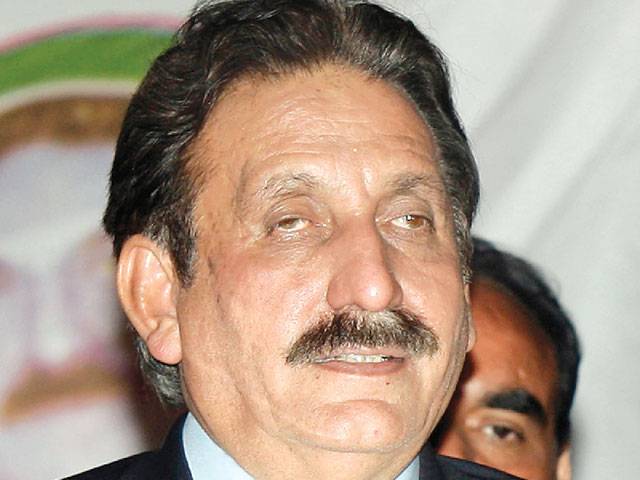HYDERABAD/Matiari – Chief Justice Iftikhar Muhammad Chaudhry has said that the judiciary is a supporter and protector of democracy and all the institutions of the state should work while remaining within their constitutional ambit.
Addressing the lawyers at a reception hosted in his honour by the District Bar Association Matiari in Matiari, he said that no development in the society could be made possible without the supremacy of law and constitution, for which independent judiciary was essential.
The CJP said that constitution of Pakistan has clearly defined the basic structure and area of implementation of the important institutions of the state. Under trichotomy of power, the three basic pillars – executive, legislature and judiciary – are to exercise their powers under the set limitations, but they cannot interfere into the affairs and powers of other institution, he added.
Besides definition and implementation of law, he said the judiciary has constitutional authority to settle the issues between the governments (provincial and federal), their different institutions and departments as well as between the government and the people.
The constitution has granted powers of judicial review of the affairs of other institutions under Articles 184 and 199, he said. “If any government institution or person is involved in constitutional violation, it could be challenged in the court.”
The chief justice however made it clear that the judiciary could not discharge its responsibility in effective manner without the support of able and devoted bar. The judges and lawyers are the important parts of the justice system.
He said that the bar members have great responsibilities for ensuring justice and the protection of fundamental rights of the people. At the one hand, they are bound to defend the rights of their client while on the other hand they must pool their share for welfare of the people, the chief justice said and praised the efforts of the Matiari Bar in the movement of the restoration of independent judiciary.
On late Friday night, the chief justice also addressed the District Returning Officers, Returning Officers and Assistant Returning Officers of Hyderabad, Jamshoro, Matiari, Tando Muhammad Khan, Tando Allahyar, Mirpurkhas and Thatta districts here at District and Sessions Court Hyderabad.
He told them that holding of elections in a transparent manner was the responsibility of the Election Commission so that voters could exercise their right in a free and fair atmosphere. He said that the people have the right to choose their representatives but during scrutiny it must be ensured that the candidates are the right ones, as desired by the constitution of the country.
The elections must not only be free, fair and just, but they should also appear to be so in order to inspire the confidence of the electorate, the chief justice said. He said that it was obligatory for the Election Commission of Pakistan (ECP) under Article 218 of the constitution to make such arrangements as are necessary to ensure that elections are conducted honestly, justly, fairly and in accordance with law, and that corrupt practices are guarded against.
He said the ECP needs institutional support and strength for performance of its constitutional duty as such the judicial officers were deployed in the election process in the national interest.
He said that in the recent past so many judgments have been delivered by the apex court in the election matters.
“I am sure they will provide you insight to follow and handle the issues being raised from time to time... In one of the cases on the importance of free and fair elections we (judges) have observed that there can be no escape from the fact that a free, fair, just and transparent election is the very heart of our democratic system, as envisaged by the constitution.”
The chief justice recalled the famous landmark judgment of Anita Turab and said that Supreme Court had provided protection to the civil servant. They were required to perform duties in accordance with the law and the code of conduct and they must not be influenced by the illegal or unlawful orders of the political bosses, he said. As judicial officers, they are required to stand as a shield against all unjust or unfair means being employed to get favourable election result, he concluded.
Thursday, April 18, 2024
Judiciary a protector of democracy: CJ

PPP, PML-N parliamentary delegation in Beijing to boost ties
April 18, 2024
Eight more Sindh ministers sworn in
April 18, 2024
AGP’s audit report discloses irregularities in BRT project
April 18, 2024
National Assembly session tomorrow
April 18, 2024
EC announces election schedule for PP-269
April 18, 2024
Hepatitis Challenge
April 18, 2024
IMF Predictions
April 18, 2024
Wheat War
April 18, 2024
Rail Revival
April 17, 2024
Addressing Climate Change
April 17, 2024
Justice denied
April 18, 2024
AI dilemmas unveiled
April 18, 2024
Tax tangle
April 18, 2024
Workforce inequality
April 17, 2024
New partnerships
April 17, 2024
ePaper - Nawaiwaqt
Advertisement
Nawaiwaqt Group | Copyright © 2024





